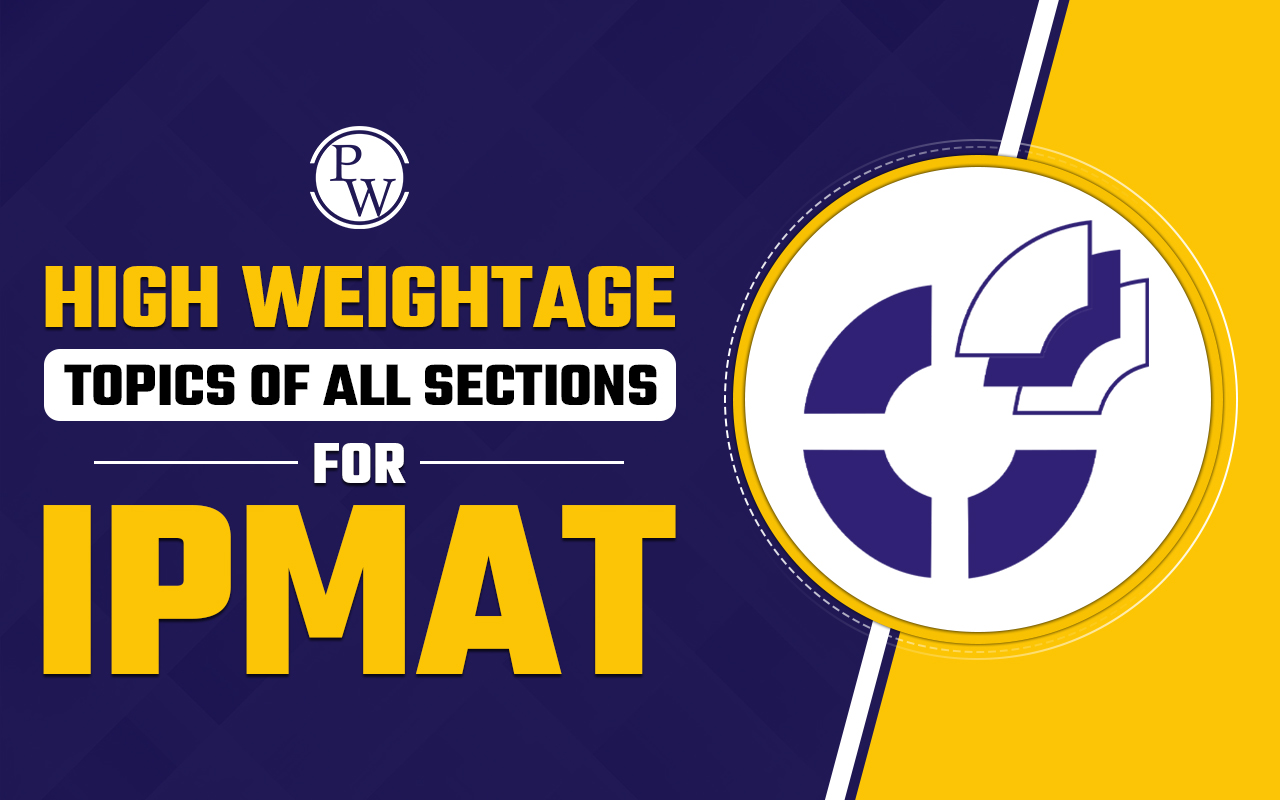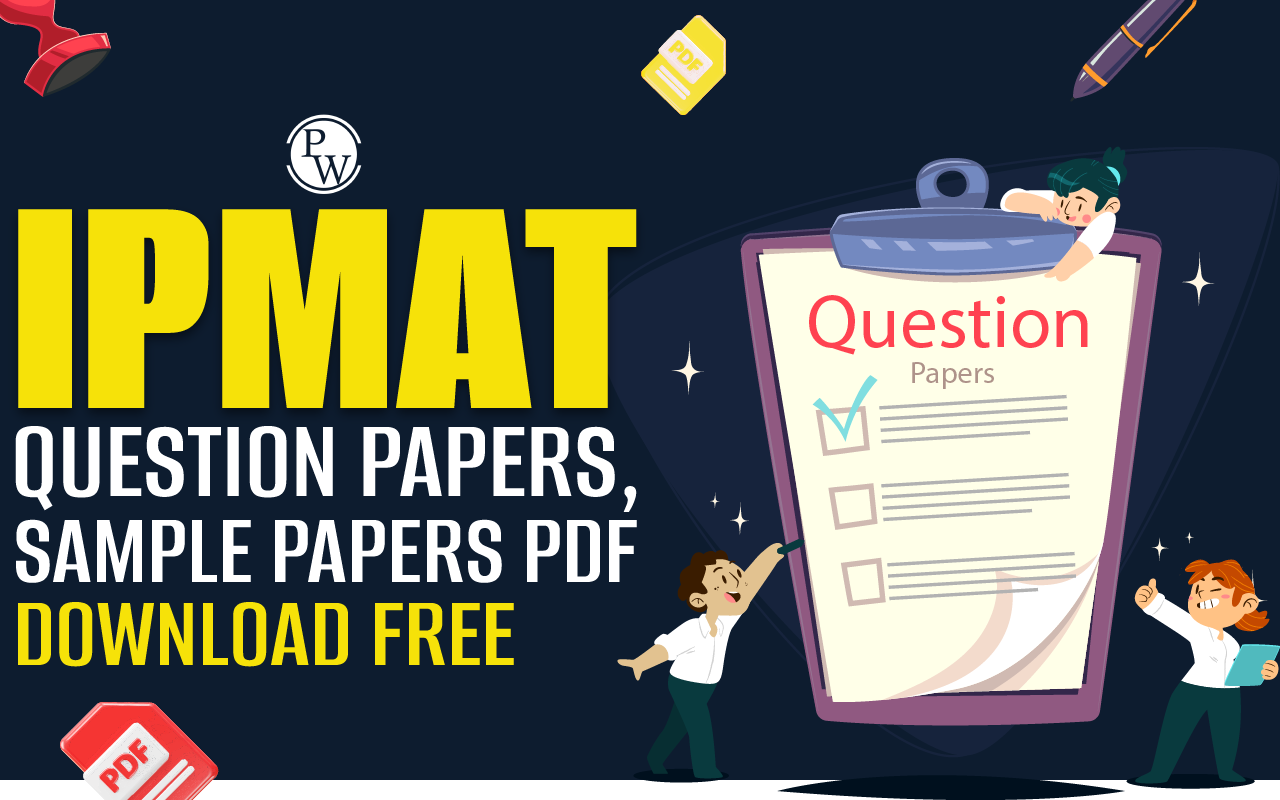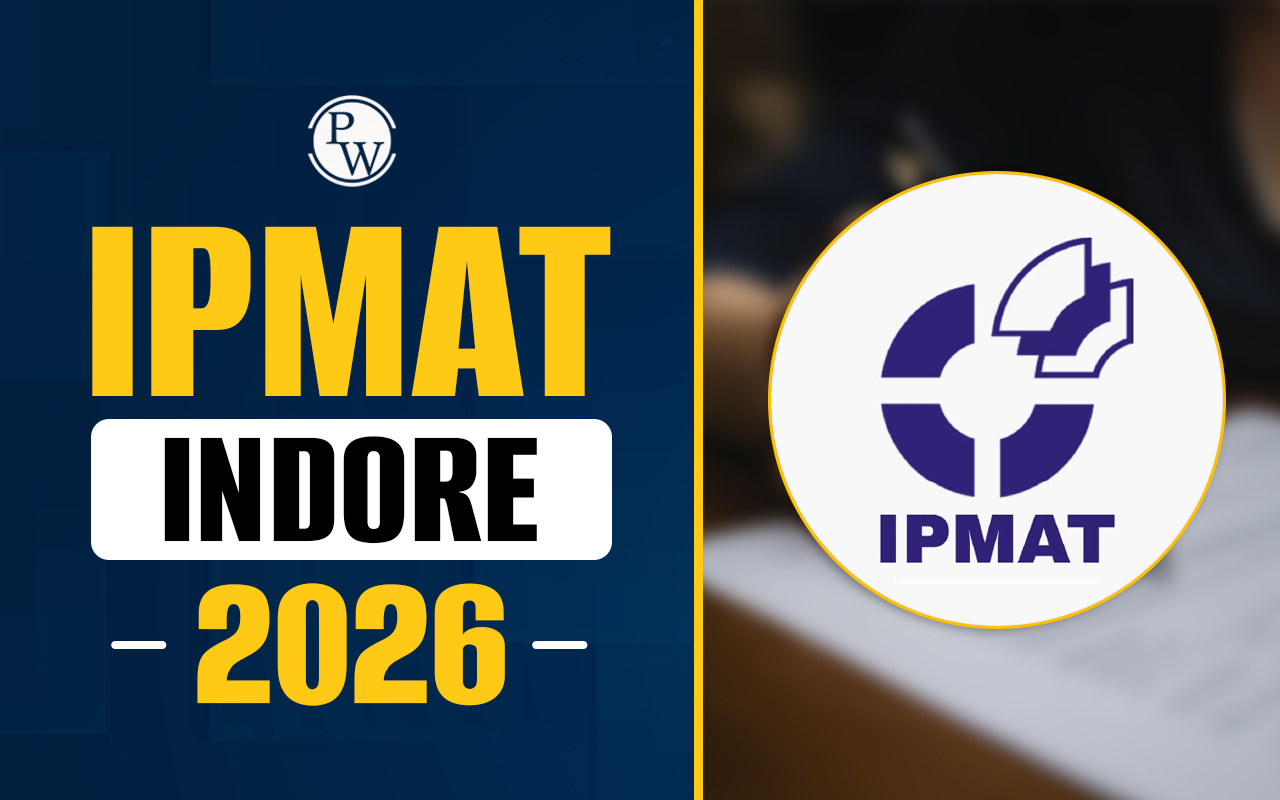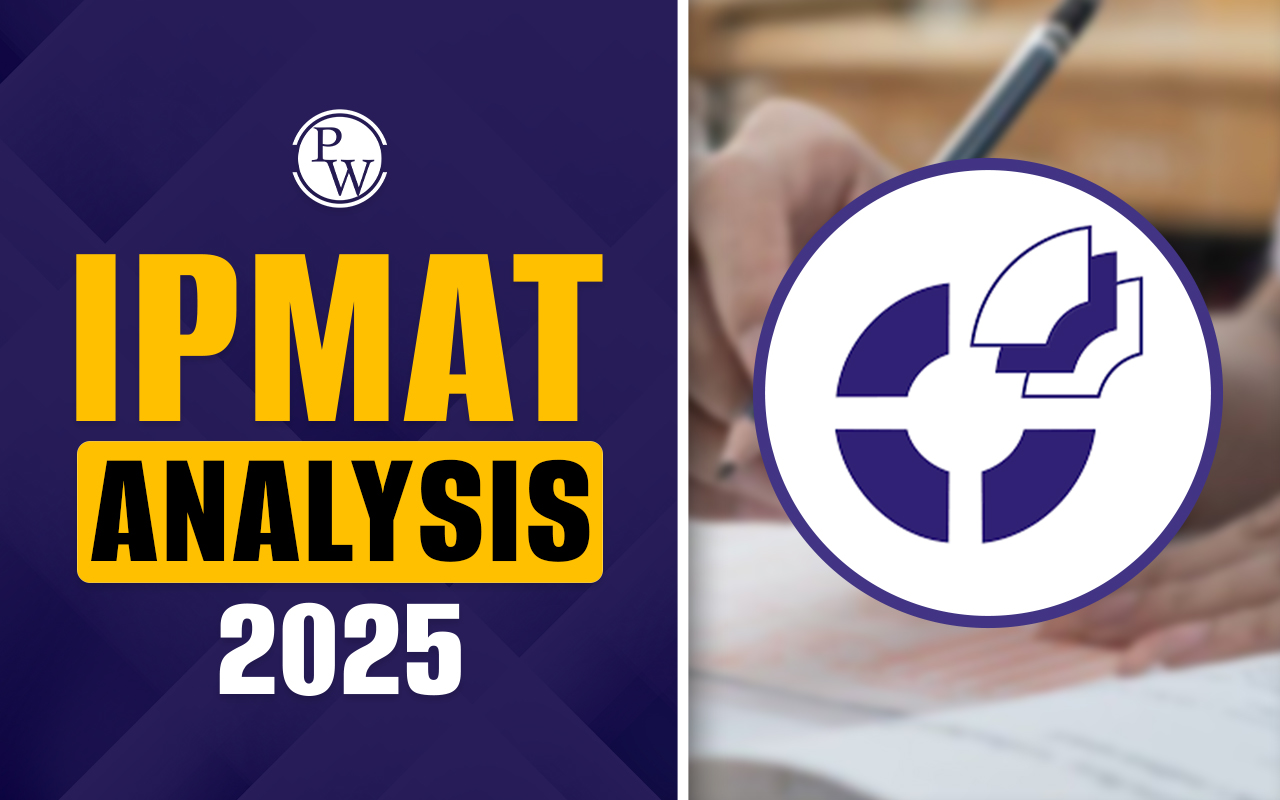

High Weightage Topics: Knowing the important topics for the Integrated Program in Management Aptitude Test (IPMAT) is very important for students who want to get into top schools like IIM Indore and IIM Rohtak . The IPMAT tests students on three main skills: Quantitative Ability, Verbal Ability, and Logical Reasoning.
Each of these areas has different topics, some of which are more important than others. By focusing on these key topics, students can prepare better and make sure they spend their time on the most common questions. Note: This strategy not only helps them score higher but also gives them a strong base to handle the various challenges in the exam.High Weightage Topics of All Sections for IPMAT
The Integrated Program in Management Aptitude Test (IPMAT) is a highly competitive examination for admission into prestigious institutions like the Indian Institutes of Management (IIMs). To excel in this exam, understanding the high weightage topics across all sections is important.Overview of IPMAT Structure
The IPMAT typically consists of three main sections:- Verbal Ability (VA)
- Quantitative Ability (QA)
- Logical Reasoning (LR) (not included in all versions of the exam)
IPMAT Exam Pattern Table
Here is the required IPMAT Exam Pattern Table listed below along with time duration and other factors:| IPMAT Exam Pattern Table | ||||
| Section | Number of Questions | Type | Maximum Marks | Time Duration |
| Verbal Ability | 45 | MCQ | 180 | 40 minutes |
| Quantitative Ability | 30 (MCQ) + 15 (SA) | MCQ + SA | 120 + 60 | 40 minutes each |
| Logical Reasoning | 40 | MCQ | 160 | 40 minutes |
Verbal Ability Section
The Verbal Ability section tests candidates' proficiency in language through various question types. The following table outlines the topic-wise weightage for this section.Verbal Ability Topic Weightage
Here is the required Verbal Ability Topic Weightage listed below:| Verbal Ability Topic Weightage | |
| Topic | Number of Questions |
| Reading Comprehension | 12 |
| Incorrect Usage of Words | 6 |
| Fill in the Blanks | 7 |
| Para Completion | 6 |
| Sentence Correction | 5 |
| Para Jumbles | 5 |
| Sentence Completion | 4 |
| Total | 45 |
- Reading Comprehension: Practice various passages, focusing on understanding context, tone, and main ideas.
- Vocabulary: Enhance your vocabulary through synonyms, antonyms, idioms, and phrases.
- Grammar: Pay attention to sentence structure and common grammatical errors.
Quantitative Ability Section
The Quantitative Ability section evaluates mathematical skills and problem-solving abilities. It is divided into two formats: Multiple Choice Questions (MCQs) and Short Answer questions (SAs).Quantitative Ability Topic Weightage (MCQ)
Here is the required Quantitative Ability Topic Weightage (MCQ) listed below:| Quantitative Ability Topic Weightage (MCQ) | |
| Topic | Number of Questions |
| Data Arrangement | 5 |
| Coordinate Geometry | 3 |
| Permutations and Combinations | 2 |
| Set Theory | 2 |
| Progressions with Log | 2 |
| Logarithms | 2 |
| Simple Interest/Compound Interest | 1 |
| Modulus Function | 1 |
| Basic Algebra | 1 |
| Geometry | 1 |
| Profit & Loss | 1 |
| Speed, Distance & Time | 1 |
| Heights & Distance/Trigonometry | 1 |
Quantitative Ability SA Topic Weightage
Here is the required Quantitative Ability SA Topic Weightage listed below:| Quantitative Ability SA Topic Weightage | |
| Topic | Number of Questions |
| Probability & Venn Diagram | 2 |
| Sequences & Series (AP, GP) | 2 |
| Percentages | 2 |
| Algebra | 2 |
| Logarithms | 2 |
| Time, Speed, Distance | 1 |
| Geometry | 1 |
| Trigonometry | 1 |
| Matrices and Determinants | 1 |
| Averages | 1 |
- Algebra: Master algebraic formulas and equations.
- Geometry: Understand properties of shapes, angles, and theorems.
- Data Interpretation: Practice interpreting graphs and charts.
Logical Reasoning Section
While not a part of every IPMAT version, when included, the Logical Reasoning section assesses analytical skills through various reasoning problems.Logical Reasoning Topic Weightage
This section may include topics such as:- Syllogisms
- Blood Relations
- Directions
- Puzzles
- Seating Arrangements
IPMAT Effective Preparation Strategies
Preparing for the IPMAT (Indian Institute of Management Indore’s Placement Management Aptitude Test) requires a strategic and organized approach. Here are some key strategies to help boost your preparation and improve your chances of success:1. Understand the Exam Pattern and Syllabus
- Familiarization: Begin by getting to know the exam format, including the sections, question types, and marking scheme. This knowledge will guide your study plan and help you manage your time effectively.
- Key Topics: The IPMAT has sections on Quantitative Ability (QA) and Verbal Ability (VA). Important QA topics include Profit and Loss, Percentages, and Data Interpretation, while VA covers Grammar, Vocabulary, and Reading Comprehension.
2. Develop a Comprehensive Study Plan
- Structured Schedule: Create a study timetable that balances learning concepts, practicing questions, and revising material. Ensure flexibility to adapt as you progress.
- Daily Goals: Set daily or weekly targets to cover specific topics or practice a set number of questions to keep making steady progress.
3. Strengthen Your Fundamentals
- Core Concepts: Build a strong foundation in core subjects like Mathematics and English by reviewing basics and practicing problems to deepen your understanding.
- Regular Revision: Plan regular review sessions to reinforce what you’ve learned, as revisiting topics helps improve memory and understanding.
4. Practice Regularly with Mock Tests
Take mock tests to become familiar with the exam environment. This practice helps identify your strengths and weaknesses.- Performance Analysis: After each mock test, review your results to understand areas that need improvement. Adjust your study plan based on these insights.
5. Enhance Time Management Skills
- Effective Strategies: Develop strategies for managing time during the exam. Practice solving questions within time limits to improve both speed and accuracy.
- Prioritize Questions: In mock tests, start with easier questions to build confidence before tackling more challenging ones.
6. Utilize Online Resources and Study Materials
- Quality Materials: Use trusted online resources, study guides, and video lectures that cover the IPMAT syllabus. Focus on a few reputable sources rather than overloading with multiple materials.
- Interactive Learning: Consider joining online courses or study groups to interact with peers and mentors who can provide valuable insights and support.
7. Stay Updated with Current Affairs
- Regular Reading: Add reading newspapers and magazines to your daily routine to stay informed about current events that may be relevant to the exam.
8. Maintain a Healthy Lifestyle
- Physical Well-being: Get adequate rest, eat healthily, and stay hydrated. A balanced lifestyle helps improve focus and memory during study sessions.
Key Takeaways
- Start preparing early, ideally 6–12 months before the exam, to cover the syllabus thoroughly.
- Regular practice, timely revisions, and effective mock test analysis are crucial for IPMAT success.
- Focus on building both speed and accuracy across all sections of the exam for the best results.
High Weightage Topics of All Sections for IPMAT FAQs
What are high weightage topics for IPMAT?
High weightage topics are the most important areas in the IPMAT exam that students should focus on. These topics have more questions and are tested more often. By studying these topics well, students can improve their chances of doing well on the exam.
Which sections are included in the IPMAT exam?
The IPMAT exam has three main sections: Verbal Ability, Quantitative Ability, and sometimes Logical Reasoning. Each section tests different skills, like language understanding, math, and logical thinking. Knowing the topics in these sections is key to good preparation.
How many questions are in each section of the IPMAT?
The number of questions varies by section. For example, the Verbal Ability section has 45 questions, the Quantitative Ability section has 30 multiple-choice questions and 15 short answer questions, and the Logical Reasoning section has 40 questions. Each section also has a specific time limit.
Why is focusing on high weightage topics important?
Focusing on high weightage topics is important because it helps students use their study time wisely. By concentrating on the most common topics, students can increase their chances of scoring higher and feeling more prepared for the exam.
What should I do to prepare effectively for the IPMAT?
To prepare well for the IPMAT, students should create a study plan that includes high weightage topics. Regular practice with past papers and mock tests is also helpful. Joining study groups and using good study resources can make studying more effective and fun.
Talk to a counsellorHave doubts? Our support team will be happy to assist you!

Check out these Related Articles
Free Learning Resources
PW Books
Notes (Class 10-12)
PW Study Materials
Notes (Class 6-9)
Ncert Solutions
Govt Exams
Class 6th to 12th Online Courses
Govt Job Exams Courses
UPSC Coaching
Defence Exam Coaching
Gate Exam Coaching
Other Exams
Know about Physics Wallah
Physics Wallah is an Indian edtech platform that provides accessible & comprehensive learning experiences to students from Class 6th to postgraduate level. We also provide extensive NCERT solutions, sample paper, NEET, JEE Mains, BITSAT previous year papers & more such resources to students. Physics Wallah also caters to over 3.5 million registered students and over 78 lakh+ Youtube subscribers with 4.8 rating on its app.
We Stand Out because
We provide students with intensive courses with India’s qualified & experienced faculties & mentors. PW strives to make the learning experience comprehensive and accessible for students of all sections of society. We believe in empowering every single student who couldn't dream of a good career in engineering and medical field earlier.
Our Key Focus Areas
Physics Wallah's main focus is to make the learning experience as economical as possible for all students. With our affordable courses like Lakshya, Udaan and Arjuna and many others, we have been able to provide a platform for lakhs of aspirants. From providing Chemistry, Maths, Physics formula to giving e-books of eminent authors like RD Sharma, RS Aggarwal and Lakhmir Singh, PW focuses on every single student's need for preparation.
What Makes Us Different
Physics Wallah strives to develop a comprehensive pedagogical structure for students, where they get a state-of-the-art learning experience with study material and resources. Apart from catering students preparing for JEE Mains and NEET, PW also provides study material for each state board like Uttar Pradesh, Bihar, and others
Copyright © 2025 Physicswallah Limited All rights reserved.











